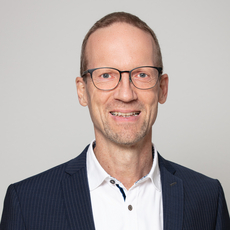Editorial
Issue 2022/02
War in Ukraine
Since February 24 of this year, there is war again in Europe – a full-scale war, fought with all military means. The consequences are horrifying: tens of thousands of soldiers and civilians killed, millions of refugees, mass deportations and abuse, immense suffering and destruction in Ukraine, and global economic repercussions. In addition, there is the constant threat of the conflict expanding, most recently with missile debris falling on Polish territory.
Although this edition of Ethics and Armed Forces is not based on the diffuse sense of unease, it can serve as our theme for this editorial. Isn’t it always deeply disconcerting how a country’s leadership can become caught up in national religious myths and war rhetoric? By way of an introduction, we asked Ukrainian political scientist Tatiana Zhurzhenko about the justification narratives and ideological background to the Russian attack.
How can and should Ukraine be supported in its defense against Russian aggression? It may be that the heated debates on this subject here in Germany also reflect shock at the end of peace in Europe, which had been taken for granted. Even within the churches, supporters of arms deliveries clash with those who call for immediate peace negotiations and reject any form of military support. Does just peace – the peace-ethical guiding concept of the Protestant and Catholic churches in Germany – now need revision, or is there a need for reflection on its essential meaning? The two essays by Markus Vogt and Friedrich Lohmann examine this question.
The “turning point” in security policy proclaimed by Chancellor Olaf Scholz is frequently discussed in terms of the large-scale upgrading of the Bundeswehr’s material capabilities. But the soldiers who have sworn an oath to uphold the German constitution should not be forgotten. How do the events in Ukraine change their view of their profession? What attitude is required in these times of “new insecurity”, and what role does Innere Führung, but also personal development, play in this context? These are questions directed to the top military leadership. In this edition, Eberhard Zorn, German Chief of Defence, sets out his mission statement for the core task of national and collective defense, and the mindset required.
“We need to be ready,” writes General Eberhard Zorn. This feeling, and the resulting new seriousness, also form the subject of our special, “The Return of Violence”. In an interview, Deputy Surgeon General Dr. Stephan Schoeps talks about providing medical assistance and care for Ukrainian wounded, and the psychological and moral burdens of war. I talked with the two Catholic military chaplains Iurii Kuliievych and Dr. Petro Stanko about the importance of their pastoral work. The two Ukrainians describe, for example, how they accompanied soldiers in Rukla, Lithuania shortly before and at the start of the war.
Since the war began, events have been overshadowed by the possible use of nuclear weapons. Peter Rudolf of the German Institute for International and Security Affairs points out in his essay that the utmost caution is required in this dangerous game of “nuclear poker”.
Finally, Eastern Europe expert and violence researcher Jan Claas Behrends, and Lithuanian psychologist Danutė Gailienė discuss possible explanations for the disturbing brutality of Russian warfare. At the same time, they point out that generalized attributions of blame or hostile stereotypes are misguided. “I would say that every society can change”: with this quotation from Professor Behrends, I would like to conclude this brief overview in a mood of hope – and on behalf of the editorial team, I would like to thank everyone who has contributed to this edition.
Read the magazine
